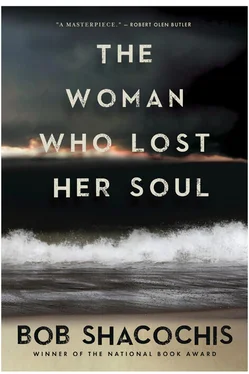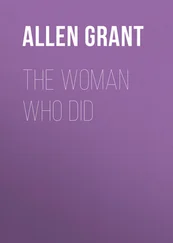He didn’t understand what had just happened to him, didn’t speak Kreyol, spoke but a few words of French, and nobody would speak to him in English. He wanted to call the embassy, call a lawyer, the manager of the hotel, call anybody, but nothing was getting across. The sun went down, nobody comes. A little later someone brought him a carton of warm orange juice and a plate of beans and rice, and then that’s it, they left him there alone throughout the night.
So you’re my client, said Dolan. How do you think you’re feeling right now?
Jesus, Tom said. In shock, enraged.
Something like that, said Dolan. So listen to this.
The next day, they took him out to the street where a black Chevy Blazer with smoked windows was parked at the curb and they put him in the backseat between a security officer from the embassy and an investigator from the National Police. In the front seat was a civilian from the consulate, who handed the client’s passport back to him with a plane ticket and explained that the Haitian police would not release his luggage and personal effects because he had refused to sign his statement. The consul also told him not to despair, that his wife’s body had already been shipped back to her family in Washington, DC. Despite the client’s repeated questions, the answer is always the same — he’s being deported — which sounds pretty good to him about this time, right? Just get me the fuck out of here, he’s thinking.
They drove to the airport, through the security fence, and onto the tarmac, right to the boarding stairs on the American Airlines flight to the States. The client was the last passenger, the attendants closed the door behind him and showed him to his seat in the first-class section where, with his first sip of complimentary scotch, the man of course began to feel that he was waking up from a very bad dream.
But now listen to this, said Dolan. My client steps off the plane in Miami and two marshals take him into custody. Next thing he knows he’s downtown at the federal courthouse being arraigned before a judge.
On what charges?
Dolan rattled off some numbers identifying the statutes. Murder of an American citizen on foreign soil. Conspiracy to kill an American citizen on foreign soil.
Your guy staged a hit on his wife? asked Tom, who frowned at the sound of this, for he had grown accustomed to the presence of death in his life, cold-blooded senseless slaughter, murder on so vast a scale he sometimes felt like the impresario of his own necropolis, and these gangster words sounded ridiculous and puny.
Christ. Maybe. Who knows? said Dolan. My client is not an upstanding citizen. He’d taken out some insurance policies on her, which is not a troublesome fact until the Haitian police notify the embassy that an American has been murdered and they have her husband and he’s being, in their words, uncooperative.
Given the going rate for assassins on the island and the incompetence of its police force, if you wanted to make your wife disappear into oblivion, Haiti was an accommodating country. And yet if Dolan’s client were innocent, Tom thought, how would you begin to measure such injustice, the horrific multiplication of wrongs?
The Bureau sent a team down there to poke around, said Conrad Dolan, but it was a dry fuck.
Business as usual.
Well, it puzzles me.
I would guess then that you’ve never been to Haiti.
There you have it, said Dolan, finally able to make his point. So, look, I’ve got to go down there for a couple of days and piece this thing together and I need somebody who knows his way around, right? You came to mind.
I’m going to have to think about it, Tom said.
Murder? his wife said later that evening, intrigued, her dry amusement peppered with irony, while they prepared for bed, as if Tom had only now discovered the novelty of America’s greatest form of entertainment, as if what he had been looking for out beyond the horizon was flourishing in his own backyard. I thought this isn’t the sort of thing you care about, she said, unless a government is pulling the trigger. What was it about a straightforward domestic homicide, she wondered, that now appealed to him?
It’s Dolan, he said. And of course it was not a simple homicide, because it was Haiti.
Like an object snatched from the top of a junk pile, Haiti had been collected by the genteel world, the world of infinite possibility, turned over in its manicured hands, sniffed and shaken, and discarded back on the heap. With the arrival of the Americans in 1994, Tom could not quite fathom the magnitude of their power or the grandness of its orchestration and was struck, like everyone else on the ground, by a naked sense of wonder, the beautiful bay that mocked the seaside slums floating an armada of enormous warships, glittering at night like waterborne villages on oceanic prairies, the dark waves of Black Hawk helicopters fluttering insectlike against the orange screen of sunset. Tanks on the garbage-piled streets. Marines huddled in igloos of sandbags. Grenades exploding in crowds, crowds exploding in joy. A blubbering macoute lynched from a signpost on Martin Luther King Boulevard, piss cascading off the dusty toes of his bare feet. A dead schoolgirl in a frilly pink dress lying in the street with her face burnt off to a matching pinkness. The Special Forces injected like antivenin into the hinterlands, liberating the villages. The peasants lining the road to cheer America! America! America! The soldiers hammering the roofs back on schools, digging wells, feeding children, handing out democracy like sweets.
And then the idea behind the thing became unclear and atrophied and no matter who made it, a white man or a black man, every promise was a type of fantasy, if not an earnest lie, each hope an illusion, every sacrifice an act of unrequited love. Once again in Haiti there was no glory and too little honor and too much of God’s indifferent truth. The army arrived in thunder and left in a foul haze of smoke, having performed a magnificent pantomime of redemption, and throughout it all Harrington carried on with his work, the many, many graves he was obliged to locate, some as fresh as his morning’s breakfast but others grassed over and as big as swimming pools, his pursuit of the dead undeterred by futility until the day arrived when he, too, turned to walk away from it all.
It seems to me that your world and Dolan’s are much the same, his wife said.
He had watched his wife undress, disappointed because he seemed to merit the teasing reward of the colorful silks of new lingerie only on the nights of his homecomings, when she yielded to their lovemaking with varying degrees of eagerness; then the ritual was discarded for drab synthetics and stained sports bras and the familiar inertia of fifteen years of marriage. He believed in people trying to comfort one another but the comfort he found with her came from the life they had made together more than what she might or could provide by herself alone, the attention she afforded him no longer the precious commodity of their youth, and in the previous year when he had confessed in the heat of an argument that she no longer excited him, she set her eyes upon him in a fury and hissed, Haven’t you had enough excitement, Tom? Haven’t you had more than your share?
Dolan has a different perspective.
And I thought you’d gotten beyond your death wish, she said, her way of being droll, sliding into bed beside him and picking up her book from the nightstand.
I have. I’m staying away from the working girls at the Oloffson.
These unsubtle banterings between husband and wife were the gloss on so much tension and unspoken dread, a glib pattern that contorted into foolish promises to not do anything stupid and cold pragmatic decisions like medical evacuation plans and life insurance policies. Dolan’s client had one on his wife, Tom’s wife had one on him.
Читать дальше












